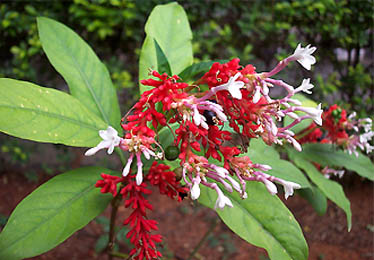What are the possible side effects of using Serpentina?
A member of the milkweed family, rauwolfia (Rauwolfia serpentina), often spelled ravolphia, is a useful shrub. Its root is either marketed as pills or capsules, or it is ground into a powder and packaged in this way. It is a substance that is frequently utilised in Asian medicine, particularly the traditional Ayurvedic treatment that originated in India.

About 50 alkaloids, which are its active constituents, have been identified; however, reserpine, rescinnamine, and deserpidine seem to produce the strongest psychedelic effects. Indian snakeroot should not be confused with Yohimbe or Rauvolfia vomitoria. They are not equivalent.
Uses
Indian snakeroot is used to treat mental illnesses such agitated psychosis and insanity, as well as mild high blood pressure, anxiety, and sleeplessness. It is also used as a tonic for general debilities and for snake and reptile bites, fever, constipation, feverish intestinal problems, liver disorders, achy joints (rheumatism), fluid retention (edoema), and epilepsy.
Indian snakeroot has a substance that is similar to the prescription medication reserpine. Reserpine is used to treat schizophrenia, mild to severe hypertension, and a few signs of impaired circulation.
- Difficulty sleeping (insomnia). Early research suggests that Indian snakeroot, when taken with two additional plants, may be able to treat insomnia.
- Nervousness.
- illnesses of the mind like schizophrenia.
- Constipation.
- Fever.
- liver issues.
- painful joints
- due to inadequate circulation, leg spasms.
- mildly elevated blood pressure
- other circumstances
Side effects
When a standardised extract is administered under the guidance of a medical expert with experience using it, Indian snakeroot is POSSIBLY SAFE. Standardized Indian snakeroot has a predetermined dosage of medication. Indian snakeroot has a range of compounds, including reserpine, depending on the plant.
Indian snakeroot contains reserpine and other potentially hazardous compounds; therefore, a skilled healthcare expert must accurately calculate the dosage and monitor any side effects. Nasal congestion, stomach cramps, diarrhoea, nausea, vomiting, loss of appetite, drowsiness, seizures, Parkinson’s-like symptoms, and coma are just a few of the side effects that can range in severity from mild to serious. When driving or operating heavy machinery, Indian snakeroot should not be taken because it can impair reaction time.
SPECIAL PRECAUTIONS & WARNINGS
Pregnancy and breast-feeding: Indian snakeroot is NOT SAFE to take during pregnancy or when nursing a baby. Indian snakeroot has compounds that could lead to birth abnormalities. Additionally, it is NOT SAFE to utilise this Indian snakeroot when nursing. It contains toxins that can enter breast milk and damage a nursing infant.
Shock therapy (electroconvulsive therapy, ECT): Indian snakeroot should not be administered by patients undergoing electroconvulsive therapy (ECT), also known as shock therapy. Indian snakeroot should be stopped at least a week before starting ECT.
Gall stones: Indian snakeroot may exacerbate gallstones and gallbladder disorders.
Stomach ulcers, intestinal ulcers, or ulcerative colitis: If you have ever experienced stomach, intestinal, or ulcerative colitis, you should not use Indian snakeroot.
Allergic reaction to reserpine or other drugs classified as rauwolfia alkaloids: If you have an allergy to any of these medications, avoid taking Indian snakeroot.
Depression: If you have depression or suicidal thoughts, avoid using Indian snakeroot.
Pheochromocytoma: An adrenal gland tumour that raises blood pressure to hazardous levels: In this case, stay away from Indian snakeroot.
Surgery: Indian snakeroot may hasten the central nervous system during surgery. There is a worry that it can make surgery more difficult by raising blood pressure and heart rate. Before any scheduled surgery, stop using Indian snakeroot at least two weeks in advance.
REFERENCES:
- https://www.rxlist.com/indian_snakeroot/supplements.htm
- https://www.webmd.com/vitamins/ai/ingredientmono-787/indian-snakeroot
- https://www.sciencedirect.com/topics/pharmacology-toxicology-and-pharmaceutical-science/rauvolfia-serpentina
- https://www.ncbi.nlm.nih.gov/pmc/articles/PMC4566472/
For more details, kindly visit below.